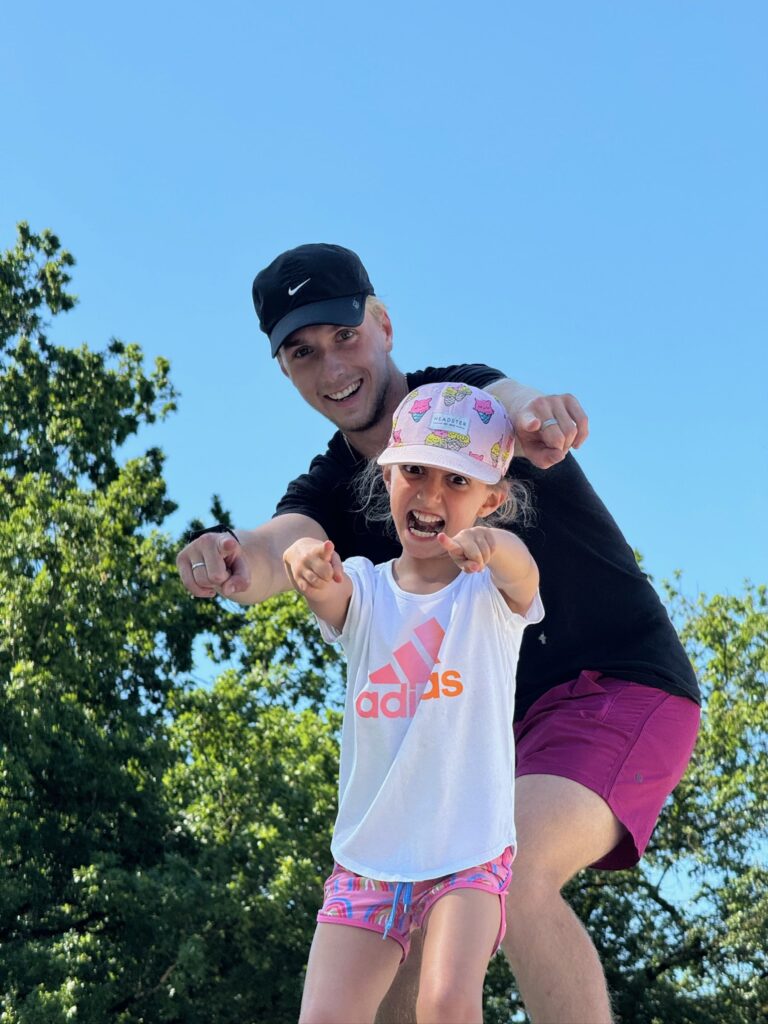Understanding of Learning
Learning to me is based on reputation and practice. By applying knowledge or skills in real life situations, wherever if it’s at school or elsewhere, I can contribute to society in a meaningful and impactful way. From an early age my family has stated that knowledge is power, and how I can achieve said power is by having a higher form of education.
Example:
When studying for human anatomy, what I figured out what worked best for me was:
- Going into the anatomy labs early in the week and studying the content for the week everyday and taking pictures of the models and laminated sheets.
- Watching tutorials on anatomy specifically crash course to help me understand.
- Going to each lecture and taking notes by hand which helped embed the content into my mind.
- Practicing each week going over notes and writing down key points.
This helped me feel more confident and prepared going into the quizzes every week. I no longer felt helpless and unprepared as I knew what was expected of me and holding myself to higher expectations.
Learning Theories and How You Learn Best
The approach that aligns with me the most is cognitivism, as I learn best when the information is organized clearly, and how the project/task fits together that makes it easy to remember. Breaking down the steps and completing them in an organized list helps me to clarify and solve any issues that come up. If criteria is spread out in sentences or paragraphs and involves visuals and links that take me to other resources, instead of it being laid out in single clear document, becomes difficult for me to follow.
| Jobs | Application | Takeaways |
| Mountain bike coach | Instead of a google sheet in which it was shared with all the coaches, I would create a google doc with images and type out hour by hour the plans for the day. | Being able to see the plan laid out each day in a quick format that I was familiar with allowed for smooth classes and easy transitions to each activity without worry. |
| Out of school care leader | My boss had set the agenda for each week but my co-worker and I where tasked with planning out each days activities that weren’t planned out by my boss. We would meet and had a google doc with a template for the days that weren’t already planned. | By having a document with the materials outlined that was needed, and time stamps when activities where happening, was easy to memorize and allowed the leaders to play with kids and prep games and snacks without it being overly complicated. |
In my educational experiences the cognitivist approach keeps me more engaged as I’m constantly looking for structure and strategies to help me retain and apply what I’ve learned. Adults and children these days have shorter and shorter attention spans. By communicating and transferring my knowledge to the students based on what I’ve learned and past life experiences, it becomes easier and easier overtime to explain concepts clearly, adapt to different learning styles, and build confidence in my ability to teach.

Motivation in Learning (ARCS Model)
Out of the four elements of motivation in learning from the ARCS Model, relevance is the most important factor in keeping me engaged.
If I can see what I’m learning and how it connects to my goals and real-life situations, I stay motivated to work hard. Teachfloor states that you need to make the material relevant. This means the material should relate directly to the needs and interests of the audience. (Teachfloor, n.d.)
From the ARCS model, I believe relevance is the most important when it comes to keeping me engaged. I incorporate my parents teachings and how they modeled their behaviour when I was growing up. My mom, a teacher, and my dad who worked in construction, had very different jobs. I see myself connecting with them because of their work ethic and how they each take responsibility. Their work ethic shaped the lifestyle they provided for our family, which is directly relevant to my own goals. It is something I hope to replicate one day for my kids. When I am in school studying, I take it upon myself as a path to connect my future to a career, to provide the same opportunities in life as my parents did for me.
Adult Learning and Prior Knowledge
It seems the old saying, “you can’t teach an old dog new tricks”, is far from the truth after all. In this video, Harry from Growth Engineering (Adult Learning Theory, 2021) explains why before World War ll, therapists focused on the different ways children learn, but states how crucial it is how we learn as adults, compared to when we where younger. He says there as six assumptions of adult learners:
- Need to know – Adults need to know the reason why they are learning something.
- Self concept – Adults need to be more self-directed and independent learners.
- Adult learner experience – Learning from previous experience.
- Readiness to learn – New material must be highly relevant.
- Orientation of learning – Problem centered and task orientated.
- Motivation to learn – Intrinsic factors or internal motivators.
How I see my prior knowledge influencing the way I approach new learning is self-concept and how adults need to be more independent learners. How I have learn’t best is by going at a task on my own and not asking questions all the time. However, when I get in a rut I need a way out which is why I ask for help. For example, in this class I was stuck trying to navigate tasks and complete everything thoroughly and to a high standard. When I tried on my own I had to reach out for help, and when I got past that part of feeling “stuck” I persevered on my own. The application of self-concept will help me overcome barriers and challenges that I face in this class, as the tools are laid out in front of me.
References
Adult Learning Theory: How Do Adults Learn Best? [Video]. (2021, December 7). YouTube. https://www.youtube.com/watch?v=Mx1uOCsy72k
Crash Course. (n.d.). Anatomy & physiology. Crash Course. https://thecrashcourse.com/topic/anatomy/
Teachfloor. (n.d.). What is ARCS (Attention, Relevance, Confidence, Satisfaction)? Teachfloor. https://www.teachfloor.com/elearning-glossary/what-is-arcs-attention-relevance-confidence-satisfaction

Hello Max,
I really enjoyed reading your blog post! I found the design and layout to be very user friendly and captivating. The table you made with application and takeaway was very interesting and is great for those who have yet to understand the topic.
Your personal reflection was interesting and allowed for your ideas to have more depth and relatability to them. I am curious if you could add more outside sources to make the ideas more rounded?
When discussing your understanding of learning, I thought it was very cool how you explained the way you learn most confidently, it fosters the idea that learning is just not a one way street and that a combination of approaches may best suit a learner!
To summarize, I enjoyed reading into your personal reflection, your use of demonstrations, and the layout your blog post had!
Hi Max!
I really liked how you described learning as something that comes from practice and real-life application. Your example from anatomy shows that you have strong strategies for your own learning by watching crash course videos, studying ahead of time, and taking notes. Hearing that you hand-write notes is awesome, that definitely makes the material stick in your brain! Nowadays in lecture it seems like everyone is on laptops and they’re definitely missing out on that opportunity. I’m glad to hear that these strategies helped you feel less overwhelmed and more confident.
I really relate to what you said about cognitivism. Having information organized and easy-to-follow makes such a difference when learning. I love how you connected this to your work experiences, and it’s awesome that using clear documents and hour-by-hour outlines not only helped you, but also made things go smoother for the people you were working with.
Lastly, I liked your point about self-concept in adult learning. Wanting to try things on your own first shows that independence, but also knowing when to ask for help is a super important balance. That mix of self-reliance and willingness to seek support will definitely help you in both school and your future career.